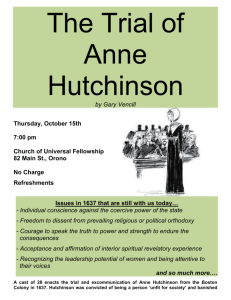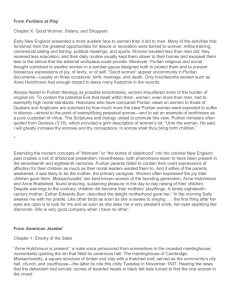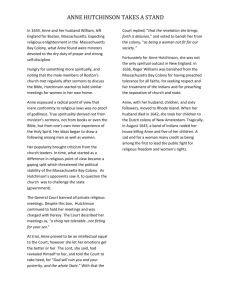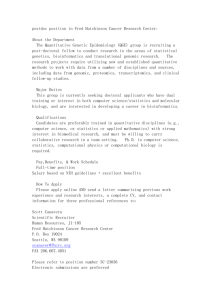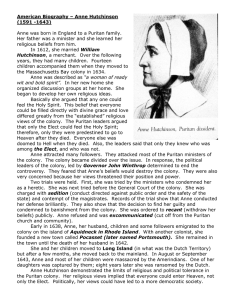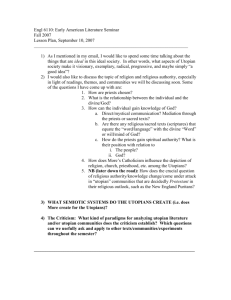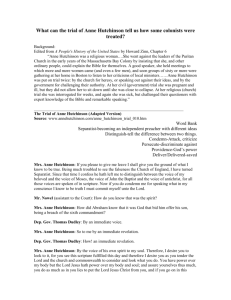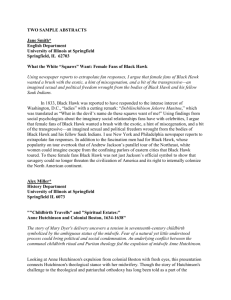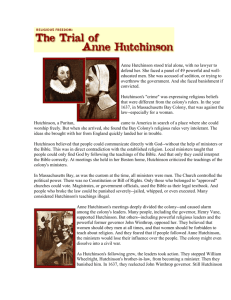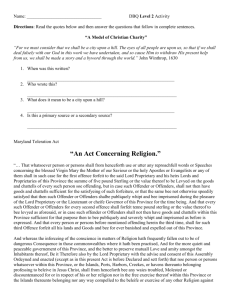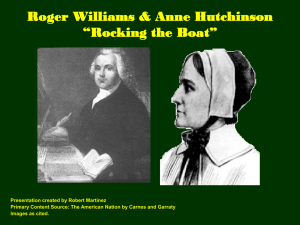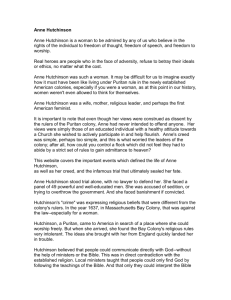Anne Hutchinson - Demarest School
advertisement
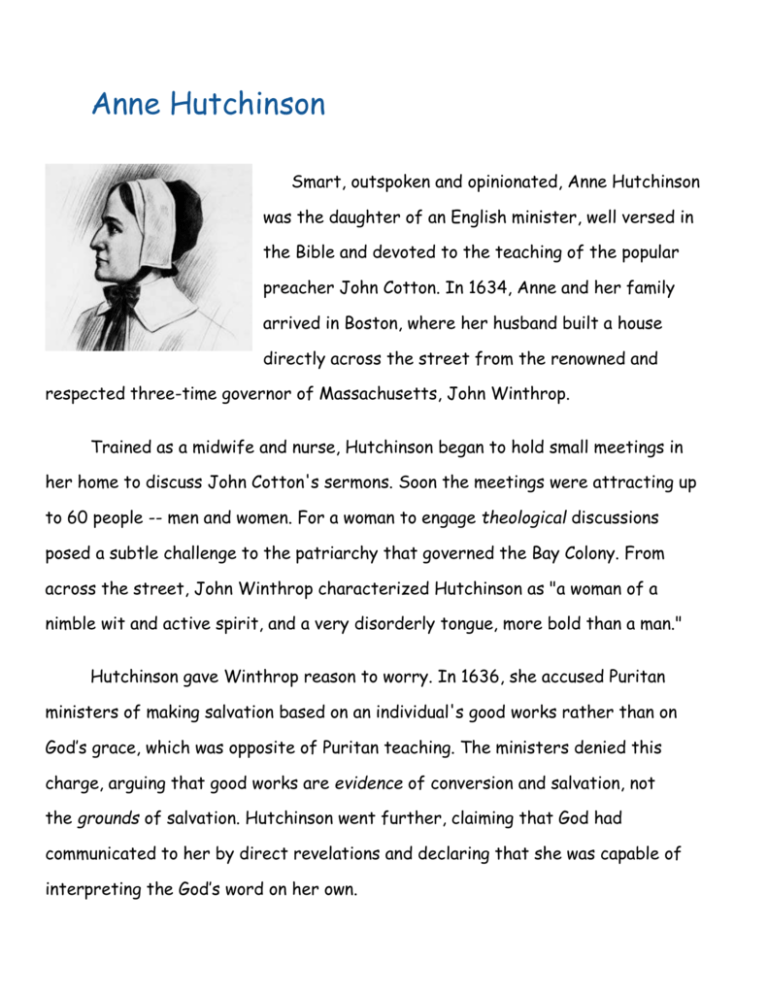
Anne Hutchinson Smart, outspoken and opinionated, Anne Hutchinson was the daughter of an English minister, well versed in the Bible and devoted to the teaching of the popular preacher John Cotton. In 1634, Anne and her family arrived in Boston, where her husband built a house directly across the street from the renowned and respected three-time governor of Massachusetts, John Winthrop. Trained as a midwife and nurse, Hutchinson began to hold small meetings in her home to discuss John Cotton's sermons. Soon the meetings were attracting up to 60 people -- men and women. For a woman to engage theological discussions posed a subtle challenge to the patriarchy that governed the Bay Colony. From across the street, John Winthrop characterized Hutchinson as "a woman of a nimble wit and active spirit, and a very disorderly tongue, more bold than a man." Hutchinson gave Winthrop reason to worry. In 1636, she accused Puritan ministers of making salvation based on an individual's good works rather than on God’s grace, which was opposite of Puritan teaching. The ministers denied this charge, arguing that good works are evidence of conversion and salvation, not the grounds of salvation. Hutchinson went further, claiming that God had communicated to her by direct revelations and declaring that she was capable of interpreting the God’s word on her own. Hutchinson's charges constituted an attack on the authority of both the church and society. For Puritans, the ultimate source of authority was the Bible, which was interpreted by authorized ministers. Hutchinson's claim that she possessed the authority to interpret the Bible challenged this idea. Even more maddening was her claim that she received immediate words from God. Her challenge to official doctrine threatened to tear the Massachusetts Bay Colony apart. In November 1637, Hutchinson was brought before the General Court, the colony's governing body, on charges of sedition. Winthrop questioned her closely, but she dodged his attempts to find her guilty. The following day Hutchinson changed her position. She freely acknowledged that God spoke to her directly. This claim constituted blasphemy. Now the court had grounds to punish her. The assembly voted and handed down its judgment: banishment. Anne and her husband, William, found refuge in Roger Williams' colony in Providence, R.I. Hutchinson's experience speaks to a persistent question: What is the source of religious authority? Is it the individual or the community? Who decides? How much dissent can a religious community tolerate? What are the limits, if any?
